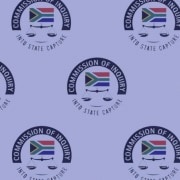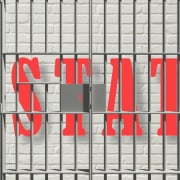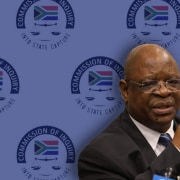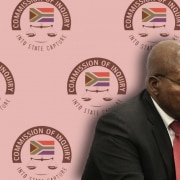|
Getting your Trinity Audio player ready...
|
By Judith February and Karam Singh
First published on Daily Maverick
When it seems that virtually every tender awarded during the time of a health emergency is tainted with corruption, it says something about the soul of the country.
The president’s own spokesperson, Khusela Diko, said she and her husband made an “error of judgement” when he tendered for a contract to supply personal protective equipment (PPE) worth R125-million to the Gauteng Department of Health. At the same time, we heard that the children of ANC secretary-general Ace Magashule and former minister Nomvula Mokonyane allegedly benefited from Covid-19 tenders. The country is justifiably angry at the political elite’s blatant self-enrichment. Despite assurances that corruption will be dealt with, the impunity of those in power seems interminable.
Politics of corruption
Corruption in South Africa is unavoidably linked to the governing ANC, given the party’s dominance of the political landscape. In a letter to his party colleagues in August 2020, following the Covid-19 procurement scandals, President Cyril Ramaphosa said: “The ANC may not stand alone in the dock, but it does stand as Accused No 1.”
He continued: “Over the years, we have seen corruption in the state, in society and in the ANC take several forms. Perhaps the best-known form of corruption is the award of tenders and other contracts to certain companies based on conflictual relations such as friendship or family connections.”
There must be some irony in this statement, reflecting on the journey travelled by the governing party from fighting for liberation to overseeing a kleptocracy, given that Accused No 1 was once Nelson Mandela as he stood in the dock during the Rivonia Trial.
In presenting the country’s economic plan in Parliament on 15 October, Ramaphosa affirmed the intention to ensure that “political office bearers at all spheres of government do not do business with the state”. If acted upon, this could remove a significant factor in procurement corruption even though this rule is currently in place, albeit poorly enforced.
Politically exposed persons
Internationally, a key vector of corruption is what is known as politically exposed persons (PEPs). The intergovernmental Financial Action Task Force describes a PEP as “an individual who is or has been entrusted with a prominent public function. Due to their position and influence, it is recognised that many PEPs are in positions that potentially can be abused for the purpose of committing money laundering offences and related predicate offences, including corruption and bribery, as well as conducting activity related to terrorist financing.”
In South Africa, the Financial Intelligence Centre Act of 2001 refers to “Domestic Prominent Influential Persons” (Schedule 3A) and “Foreign Prominent Public Officials” (Schedule 3B). These include such luminaries as the president, ministers and members of royal houses. In addition, the legislation makes clear that “family members and close associates” are to be regarded as “prominent” too. The latter include (Section 21 (h)) immediate family members, such as spouses or life partners, ex-spouses, children and step-children, parents, and siblings and their spouses or life partners.
These are, in other words, people with political influence, both formal and informal. Recognising this, the thinking goes, safeguards – such as disclosure measures or bans on doing business with the state – should be instituted so that the risks of abuse by PEPs are limited.
While the country’s anti-corruption infrastructure is creaky and nowhere close to emulating the high standards set by the UN Convention Against Corruption (UNCAC), to which South Africa is a signatory, not even our Constitution or institutions to combat corruption are functioning and taking action. Some progress has been made in dismantling the architecture of state capture. The Hawks have made arrests and the National Prosecuting Authority has started prosecutions, but for a durable response, it will be necessary to stave off the opportunities for corruption before they can be seized.
The question of associates
The actions taken so far have been targeted at crooked people within the state. What of their relatives and “associates”?
Interestingly, the Municipal Systems Act of 2000, now nearly 20 years old, recognised the risk of corruption around the families and associates of office bearers. Schedule 1 requires “a councillor who, or whose spouse, partner, business associate or close family member, acquired or stands to acquire any direct benefit from a contract concluded with the municipality” to disclose the benefit to the council.
The abuse of PPE procurement sparked a renewed debate about tackling corruption as a precondition for post-pandemic reconstruction. The alleged involvement of family members of political and governmental office holders showed that it was necessary to cast the net more widely than the office holders themselves. Significantly, Cosatu favoured an extensive ban on PEPs (which would include office bearers’ family members and associates) doing business with the state. Nedlac endorsed this idea during its discussions around the Economic Recovery Action Plan. The aim is to restore business confidence by dealing with key stumbling blocks to growth, endemic corruption being a prime one.
The government had previously argued that limiting people from contracting with the state because they were associated with political office bearers would infringe their constitutional rights. Legal opinion sought by Nedlac and now in the public domain, suggests that it would however be constitutional to do so. This is, “firstly, because no right will be infringed and secondly, because if a right is infringed, it would be justifiable in terms of section 36” of the Constitution, which requires that any limitation of right be justifiable based upon constitutional values in an open and democratic society.
The legal opinion outlined possible forms these measures could take, including prohibiting such people from doing business with the state outright, requiring family ties or associations with PEPs to be disclosed in contracts, and having National Treasury oversee the awarding of contracts involving PEPs. The relevant legislation could be incorporated by amending the Public Finance Management Act, though this could prove unwieldy and would take time to pass through Parliament. Exactly who would count as a PEP would, moreover, have to be defined, with the opinion suggesting that the Financial Intelligence Centre Act could provide a sound basis for doing so.
Implementing restrictive measures on PEPs will have to overcome strong political resistance. The ANC has not shown itself to be overwhelmingly supportive of bans on families contracting with the state. Its NEC meeting in early October resolved only to consult on the issue more widely.
Magashule challenged his detractors to show him an ANC leader who had not done business with the state. This has implications not only for individuals’ benefit but also for patronage networks and funding for party activities – not to mention the ability simply to loot.
Also contentious is exactly whom such legislation would exclude. To prohibit office bearers might be simple. To exclude spouses might also be. Children would be more difficult – is the businessperson daughter of a politician to be barred purely on the basis of a family relationship? What of estranged children? And PEP corruption often centres on informal connections. “Associates” would lend itself to a very elastic definition. Is a claimed or assumed personal friendship with someone in power enough to disqualify someone?
The focus on PEPs is a welcome development. If appropriate legislation and action is taken it would be a valuable move against a practice that is an intrinsic part of our corruption problem. It would no less importantly help signal that the environment is changing and political connections no longer imply impunity.
Gearing up for progress
Addressing PEPs – or any other issue individually – will have a limited impact. It needs to be done as part of a wider initiative. First, an easy win would be for Ramaphosa to set a commencement date for the Political Party Funding Act. The failure to regulate party funding has been a major driver of corruption and institutional damage and the law needs to take effect, specifically ahead of next year’s local government elections.
Second, relentless depoliticisation and professionalisation of the civil service should be undertaken. Politicisation is a corrosive influence in this field and a source of corruption. We continue to envision an ethical civil service that is not intrinsically compromised by corruption including the pressures of political patronage. Within this we have to build a culture of disclosure by protecting and incentivising those who come forward. Greater whistle-blower protection is required.
As the Zondo commission illustrates, the role of whistle-blowers is crucial to unveiling malfeasance. Finally, special Covid-19 corruption courts must be instituted, to dispense visible and expeditious justice.
We need stronger independent institutions capable of fighting corruption, that are properly mandated, resourced and professionally capacitated. Such institutions should be based on international best practice as proposed by the UNCAC and constitutional principles.
But even all these measures will not be sufficient. However solid the legislative and institutional environment is, in implementation there will never be any substitute for proper commitment by the politicians and civil servants who must oversee and administer that environment.
But most important is citizen engagement. Despite the challenges we are facing, we can look back with some gritty satisfaction on the progress we have achieved in pushing back against State Capture and accountability-free governance. This is an achievement of civil society. We need to ask what kind of society we want and what are the creative ways in which to demand accountability from those in power? The Constitution and its enabling laws are empty shells if we, as citizens, do not demand a different way of doing things.
• Judith February is an attorney at Corruption Watch and Karam Singh is the head of Legal and Investigations at Corruption Watch.








